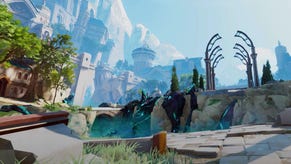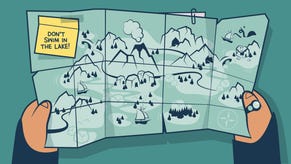Dragon Age: Origins review
Drakes' fortune.
This is a review of the PC version of Dragon Age: Origins. We'll tackle the console version separately soon.
I can scarcely remember the last time I played a game in which I didn't level up. Forza Motorsport 3's racecars grind out experience points with every lap. Borderlands is a gluttonous hybrid of hair-trigger silliness and accumulating stats. Call of Duty has conquered online shooting with persistent character progression. Even the Space Invaders cannon - the humblest, most primal collection of pixels in gaming - now gains ranks and power with every kill. In 2009, the role-playing game is everywhere.
But where, in its traditional form, is the role-playing game? The genre's biggest recent hits are the futuristic action crossovers Fallout 3 and Mass Effect, and online scion World of Warcraft. In Japan, Monster Hunter's weird sub-genre of handheld multiplayer grinding has swept aside the fantasy epics that were once a national obsession. Although German developers valiantly keep the flame alive with the likes of Risen, Sacred and Drakensang, you have to look back to 2006's Oblivion to find the last globally significant solo adventure in swords and sorcery - and even that game was scarcely traditional.
Small wonder, then, that super-studio BioWare's return to the realms that made its name has attracted such intense, devotional interest. It might have shed the formal connection to Dungeons & Dragons, but otherwise Dragon Age: Origins might as well be a sequel to Baldur's Gate and Neverwinter Nights, and the world is willing it to be a classic. Over half a decade in the making, vast in scope, neck-deep in loot, lore and labyrinthine plotting - if classics were measured by the yard and made out of man-hours, Dragon Age would stand head and shoulders above them all.

But they're not. And although it's a work of great accomplishment and craftsmanship - and no small amount of ambition - Dragon Age is sorely lacking in the things that make a truly great role-playing game, or any game for that matter: vision, inspiration, soul.
Somewhere in its journey back to its roots, BioWare has got lost in the dense tangle of what it was trying to accomplish. It hasn't been able to see the wood for the trees. It has summoned an entire world into existence in the most meticulous detail, but failed to give it an identity beyond the blandest cliché. It has created living characters that respond like humans, but speak like dictionaries and move like mannequins. It has engineered solidly absorbing RPG gameplay and character progression and stranded them in a succession of hackneyed and hide-bound scenarios.
Much of the best and worst of Dragon Age: Origins can be found in the six origin stories that serve as a prologue, depending on the race and class you've chosen. (You can find more information on these, and on the game's systems in general, in our recent hands-on.) They strive hard to work plausible political depth into the straight-laced high-fantasy set-up. Elves are in touch with nature and live in the woods - but some of them are oppressed by humans. Dwarves live undergound and like mining - but their society is riven by class war. Mages toy with dangerous power beyond their control - so they're controlled by an order of zealous, drug-addicted holy warriors. An ancient evil called the Blight is rising - but infighting and scepticism are undermining the fight against it.

Each origin sketches out a complex corner of the land of Ferelden with laborious care, and each of these miniature stories will find a pleasing echo, a ripple of consequence later on in the main campaign. Each offers an interesting twist and half a chance for the player to take things in a different direction. But they're so laden with interminable exposition and storytelling artifice for its own sake that the game itself - the small matter of levelling and combat - barely gets a look-in. The same carries through to the first chapter of the campaign proper, in which your character is inducted into the Grey Wardens, an ancient organisation that fights the Blight. As if encumbered by its own sheer mass, the game takes a long, long time to get going. You'll be half a dozen hours into Dragon Age before you get the measure of it.









